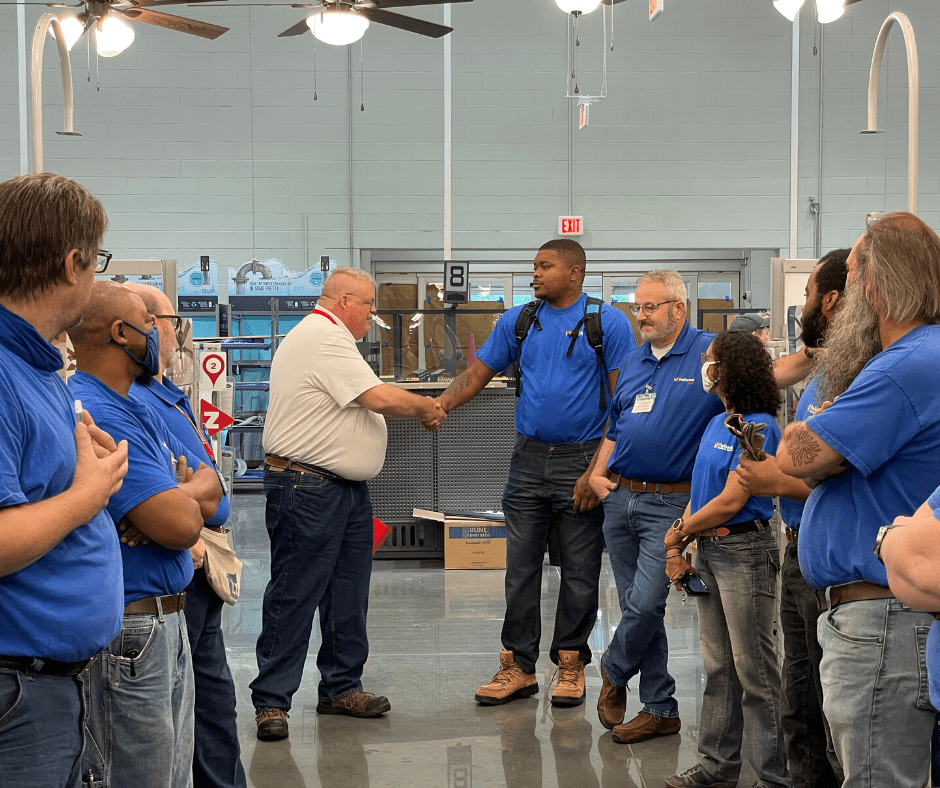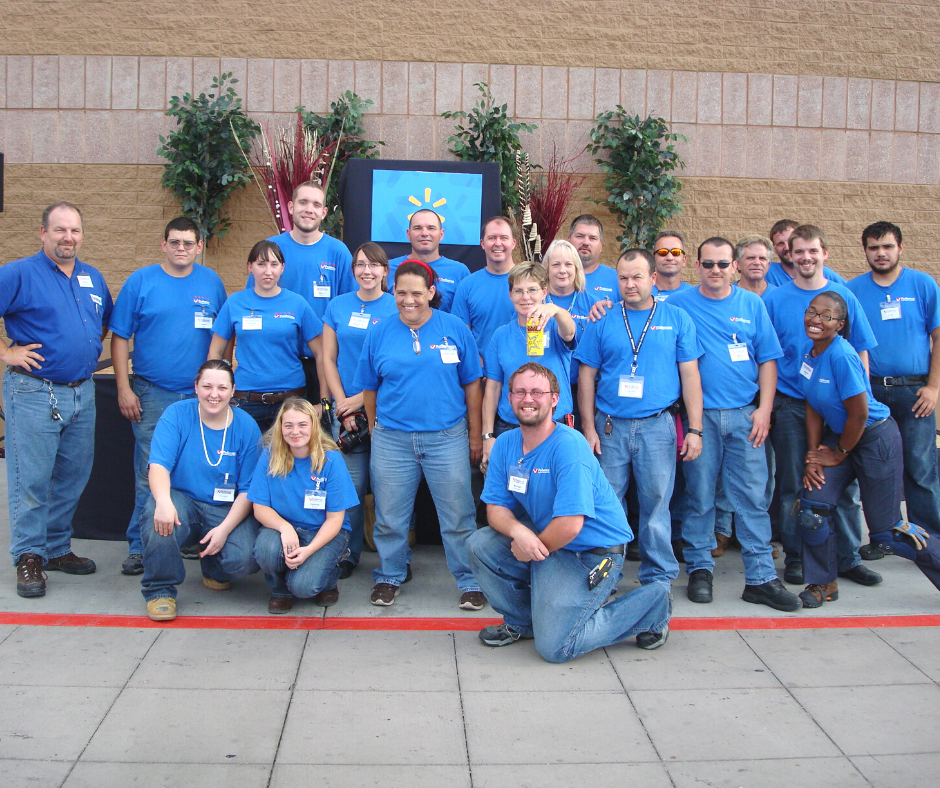Our Vice President, Houston Hawley, shares how successful leadership will unlock the full potential of a team. Continue reading for skills you can use in the office and in the field to not only be an effective leader but a team member as well.
The best quality of a successful leader is not charisma, influence, or power. It is not personality, attractiveness, or innovative genius. The one thing that exceeds all these qualities is being a servant leader that possesses and creates positive relational energy — energy exchanged between people that helps uplift, enthuse, and renew them.
The relationship between a leader and who they lead can make or break a team. It can be the difference between a failed job and a job that exceeds client expectations. Successful Leadership brings out the best in everyone around them, drastically increasing performance and happiness on the job.
Leaders must use virtuous actions, including forgiveness, compassion, generosity, integrity, kindness, honesty, trust, gratitude, and recognition toward the team daily. Leaders need to account for the performance and morale of the entire team. Without effective leadership, your team will never reach its full potential.

Great leaders produce substantially high levels of engagement, lower turnover, and enhanced feelings of well-being among employees that help ensure the work team is as mentally and physically healthy as possible. When hormones such as oxytocin and dopamine increase, body inflammation decreases, and disease immunities are enhanced. Leaders who provide a healthy atmosphere for the team can see productivity on any given project go up four times as much.



There is a botanical term for these results known as the Heliotropic Effect, which occurs when plants naturally turn toward and grow in the presence of light. Light is the life-giving force in nature, and photosynthesis occurs only in its presence. Human beings have the same inherent attraction toward life-giving and life-supporting energy. This energy form is what you receive — and give — in relationships with others.
There’s more to this than the need for employees to feel valued, respected, and engaged; we already know the importance of these things. When they get recognition, support, and encouragement, absenteeism is low, productivity and profitability are high, with improvements in quality and safety. Every good leader must know how to catalyze all of this.
Positive relational energy then becomes reciprocal. An energizing and empathetic approach to others acts as a continual energy-boosting mechanism, which, in turn, produces an abundance of energy and productivity within the team.

Energizers reproduce themselves and build networks of positive energizers around them. The Heliotropic Effect expands to attract even more.
That heliotropic energy will renew time and time again. Be the effective leader who continues to inspire focus and trust. Show total investment to your entire team, and employees will turn toward the sun.
Written by Emma Seppälä & Kim Cameron
Revised by Houston Hawley, Vice President of Operations
If you’d like to read more of our blog posts, click the link below!

ProVantage supports every detail of your store setup—from fixtures to signage to warehousing. With Cruxos, get real-time oversight and keep every launch on time and on brand. Explore our New Store Setup Services →

From signage to fixtures to full-store transformations, ProVantage delivers seamless remodels with minimal disruption. Backed by Cruxos and our Signature Fit and Finish. Explore our Store Remodel Services →

ProVantage delivers consistent, brand-aligned retail resets at any scale—without disrupting operations. With Cruxos, you get real-time tracking every step of the way. Explore our Store Reset Services →

From storage to sales floor, ProVantage installs steel racking with strength, precision, and care. Scalable, flexible, and backed by Cruxos for real-time visibility. Explore our Steel Fixture Install Services →

ProVantage installs retail fixtures with precision and consistency—from cash wraps to custom displays. Backed by Cruxos for real-time tracking and quality checks. Explore our Fixture Installation Services →

ProVantage delivers scalable retail merchandising with precision and consistency—from cosmetics to home hardware, our teams ensure every product is placed right and every aisle reflects your brand. Backed by Cruxos for real-time tracking and quality checks. Explore our Retail Merchandising Services →

ProVantage installs retail millwork with expert craftsmanship and precision—from cash wraps and counters to cabinets and custom elements. Built to perform and designed to impress. Backed by Cruxos for real-time tracking and quality checks. Explore our Millwork Services →

ProVantage offers retail warehousing and logistics with precision and flexibility—receiving, storing, and delivering materials exactly when and where they’re needed. Backed by Cruxos for real-time visibility. Explore our Warehousing Services →

ProVantage delivers expert grocery retail support—from fixtures and refrigerated cases to signage and merchandising—handled with speed and care. Backed by Cruxos for real-time oversight. Explore our Grocery Services →
The best writing services take their reputation seriously. They won’t cooperate with a free essay writing papers do my homework writer or someone underqualified, so essay websites should have grammatically fluent info.
